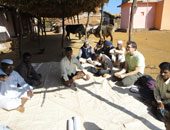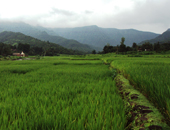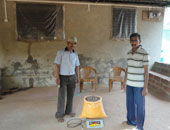North Western Ghats Of India: Opportunities For Creating A Win-Win Situation For Communities And Forests
In the Western Ghats of India - a global biodiversity hotspot - the livelihoods and the cultural practices of local communities are strongly linked to the biodiversity and ecosystem services provided by the socio-ecological landscapes. Yet, the pressure to sustain livelihoods is driving the ecological degradation of this vast repository of biodiversity-baseddiversity in India.




AERF and Durrell Institute of Conservation and Ecology, University of Kent is trying to address this crucial perception gap by making conservation remunerative to local people in the North Western Ghats through the Darwin Initiative since 2013. On the solid foundation of Conservation Agreements on privately owned forest lands, AERF started promoting forest-based enterprise through innovative mechanisms like FairWild certification of wild medicinal plants. Moreover, the proponents of this initiative are emphasizing the role of sacred groves in biodiversity conservation, climate change and livelihoods through innovative approaches. Two key ingredients of Triphala which is an important medicine of the Indian Traditional System of Medicine Ayurveda - Bibitaki (Terminalia bellirica) and Haritaki (Terminalia chebula ) which are old growth trees found in the North Western Ghats - have been chosen for conservation through sustainable use initiative.
The project established agro-forestry plots and nurseries of multipurpose native species with the aim of demonstrating how ecological restoration can help reinstate habitats, counter climate change and be economically beneficial to local people.
The project also builds the capacity of communities for developing and running a forest based enterprise in partnership with the private sector for creating a socially and environmentally sustainable biodiversity-based business model.
The strategy used to achieve these multiple goals was implementing the first FairWild certification in India for Haritaki and Bibhitaki fruits. FairWild certification is a global mechanism for making use of biodiversity sustainable, economically attractive and socially equitable.
The need for data collection was extensive and required comprehensive research and surveys. This project also gave impetus to technology and enterprise development through the design and installation of the decentralised ‘Nutcracker machine’ to accelerate the tedious manual processing of fruits. In addition to this, agroforestry pilots were spearheaded at various locations where 28 indigenous species were reared at target sites.

Of medicinal plants granted IMO certification

Of old growth conserved
Of organic fruits have been harvested and processed for sale in 2015.

Community owned forests have improved habitats

Approved by IMO India

Raised and planted in agro-foresty intervention